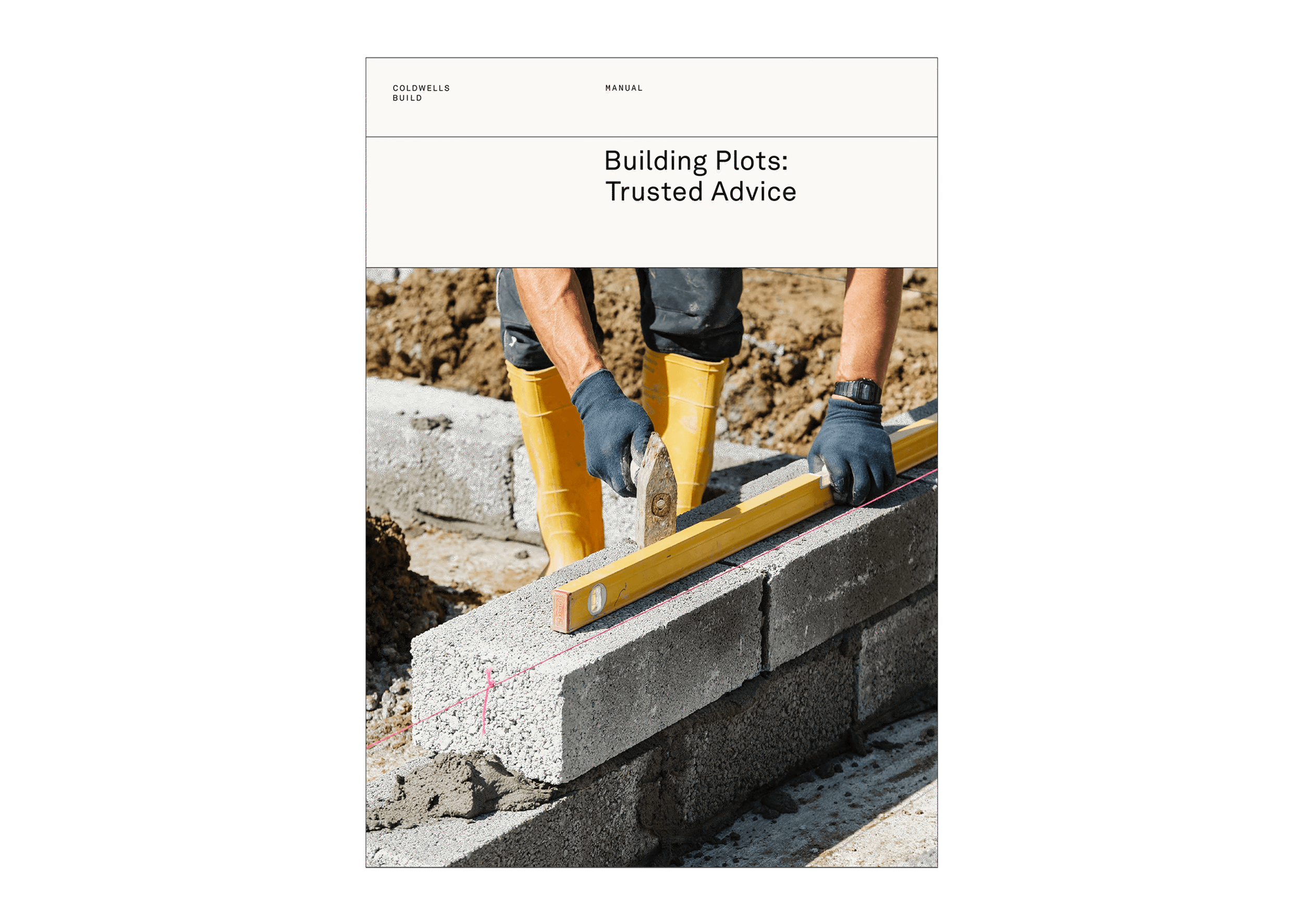
Building Plots: Trusted Advice
A self-builder's guide to finding the perfect plot, evaluating its suitability and understanding the legal considerations involved.
Download
Considering building in 2025 but hesitant to commit? We explore the factors affecting construction costs to help you decide.
Building a new home is one of the biggest investments you'll ever make, and given the current cost of living, you might be asking yourself, "Is now the right time to build?"
With the economic landscape constantly shifting, it's natural to feel uncertain. You may even wonder if waiting a year or two could result in lower construction costs. In this article, we’ll explore potential trends in the construction industry to help you make an informed decision.
The price of construction materials surged rapidly in 2021 and 2022, reaching a 40 year high. Although inflation has slowed, prices are still climbing—just not as quickly.
Ongoing challenges, such as the war in Ukraine, post-Brexit trade changes and the lingering effects of the pandemic have disrupted UK supply chains.
As manufacturing costs remain high and certain construction materials are expected to increase in the coming years, these costs will inevitably be passed on to homebuilders.
In addition to material costs, construction labour rates are also increasing, driven by a severe shortage of skilled tradespeople in the UK.
According to the Federation of Master Builders 41% of UK builders struggled to hire joiners in 2024, while 43% said the shortage of skilled tradespeople had caused job delays. This issue is expected to worsen in the coming years, exacerbated by reduced immigration and an ageing workforce.
The Scottish Government has stated its ambition that all new homes in Scotland should be built to a “Scottish equivalent” of the Passivhaus standard in the coming years.
Passivhaus is a science-based, building standard renowned for delivering ultra-low-energy homes across the world. Developed in Germany over 30 years ago, it reduces a home’s heating bills by 79%, lowers carbon emissions and improves the comfort and health of its occupants.
Scotland’s new legislation aims to develop a building standard similar to Passivhaus. This will be best achieved by adopting the five key Passivhaus principles in our homes:
Passivhaus homes typically cost about 4-8% more than traditional homes due to the need for higher quality materials and specialist construction professionals. However, as the standard gains wider acceptance and Scotland’s supply chain for materials and components expands, costs are expected to decrease. Additionally, the upfront investment is offset over time, as Passivhaus homes have lower lifetime expenses.
With the tightening in Scotland's building standards, coupled with high costs of building materials and increasing labour rates, the cost to build is certainly not coming down.
Trying to time the market for lower prices is a false economy.
The sooner you can commit to building a home, the less you'll need to invest. Starting the process now allows your builder to lock in prices with suppliers and trades before costs go up again. Plus, you could be settling into your new home within 12 months.
As the saying goes, "The best time to plant a tree was 20 years ago, the second-best time is now." The same applies to building your home—if you want to be living in it soon, it's time to get started.

A trained communicator, Clare co-founded Coldwells Build with the aim of improving consumer experience within the construction process. Working previously as a television director and journalist, she understands more than most, about the power of detail, organisation and timing.
We’ve created 8 free-to-download guides packed with tips on budgeting, plot finding and self-building. Essential reading for anyone planning to build their home.

A self-builder's guide to finding the perfect plot, evaluating its suitability and understanding the legal considerations involved.
Download